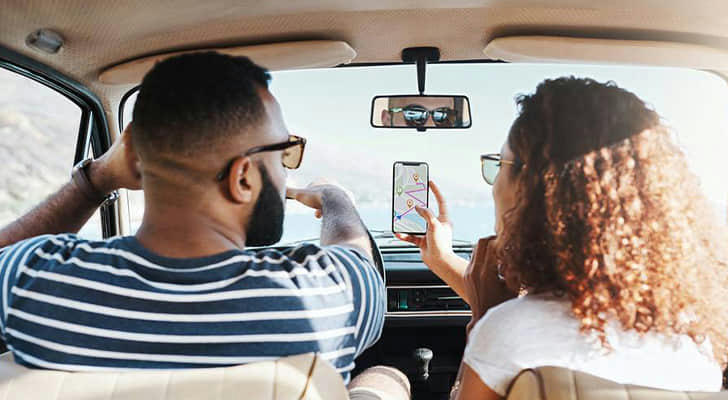Cut Your Car Insurance Costs with New Tech
So, here's the scoop on how auto insurance is getting a major facelift. Imagine this: Instead of your insurance rate being set by your age, where you live, or a bunch of stats from your past driving, it's now based on how you're driving right now. Sounds cool, right? Well, that's what's happening with a new tech called usage-based insurance (UBI). But while it promises to lower your premiums, it also means your every move on the road is being tracked.

How It Works
Forget filling out endless forms and being confused about all the factors affecting your insurance rate. With usage-based insurance, you don't need to sweat the details. All you do is let the insurance company see how you drive. That's it. They use this info to figure out your premium.
Root Insurance is leading the charge in this new era. This Ohio-based startup recently raised a whopping $100 million, pushing its valuation close to $1 billion. They're currently available in 20 states and plan to cover all 50 by 2019.
Here's how it works with Root: Download their app, turn on location tracking, and upload a pic of your driver's license. The app quietly tracks your driving for about two weeks, and then—bam!—it spits out your insurance rate based on how you actually drive. Once your premium is set, you don't need to keep the app running. Simple, right?
But there's a catch. The app keeps tabs on your driving to create a complete profile, which can be a little unnerving. Dan Manges, Root's CTO, says this constant monitoring is necessary for accuracy. While Root is upfront about this, it still raises privacy concerns for some folks.
Safe Driving for Discounts
If you're not into Root's style, there's also Progressive Insurance's “Snapshot” program. This one's been around for a bit and is all about rewarding safe driving. You get a discount based on how you drive, thanks to an app that tracks your driving behavior.
James Haas from Progressive says the app encourages safer driving and offers discounts as a reward. “It's all about promoting safe driving and giving you discounts based on that behavior,” he explains.
With Snapshot, you get an initial discount and then a personalized premium for renewals. You'll need to keep the app running with location tracking, but you can also use a device that plugs into your car's diagnostic port if you prefer not to rely on your phone.
The Big Trade-Off
Here's where things get a bit sticky. While UBI can mean lower premiums, it also means sharing a lot of personal data. A 2016 study by Pew Research found that many people are uncomfortable with insurers tracking their location. The study showed that 45% of people thought it wasn't worth it for a discount, while only 37% were okay with it. For some, the idea of their location data being tracked is a deal-breaker.
Privacy experts, like Lauren Smith from the Future of Privacy Forum, say location data is super sensitive. It reveals a lot about where you go and what you do.
Root Insurance promises not to sell or rent your data and won't use it for claims unless you specifically ask them to. Still, there are questions about whether smartphones can accurately assess driving habits. Colin Bird, an automotive expert, notes that while smartphones have sensors like GPS and accelerometers, the data can sometimes be a bit messy.

Accuracy vs. Intrusiveness
Root's approach has its quirks. Some users have reported that the app tracks things like taxi rides or flights, which aren't relevant to their driving. Derek Haber mentioned that the app recorded his commute and train rides, while Venkat Raghavan found it logged Uber rides as if he was driving.
Some insurers work around this by tracking trips only when your phone is connected to your car's Bluetooth, or they let you categorize trips where you weren't driving. Root doesn't use these methods, which can lead to some inaccuracies.
What's Next?
As usage-based insurance becomes more common, there's a chance that those who don't want to participate might face higher premiums. Early users might be saving big now, but if UBI becomes the norm, people who don't opt-in could end up paying more.
Root Insurance claims its customers can save up to 52% compared to their old rates, with an average annual saving of $1,187. Progressive's Snapshot program has given out over $700 million in discounts, with drivers saving an average of $130 a year.
John Verdi from the Future of Privacy Forum believes telematics can offer more precise pricing, but there's a risk that people who opt out could face higher rates. However, he's not sure if insurance pricing will become so extreme that it forces people into tracking programs. “We have a system that already predicts risk well,” he says. “While there might be penalties for not participating, it's uncertain how drastic those changes will be.”

Conclusion
Usage-based insurance is changing the game, offering a chance to save on premiums and drive more safely. But it's also raising important questions about privacy and data accuracy. As this technology evolves, balancing the benefits with privacy concerns will be key. The future of auto insurance might be tech-heavy, but it's important to make sure it's also fair and transparent.
